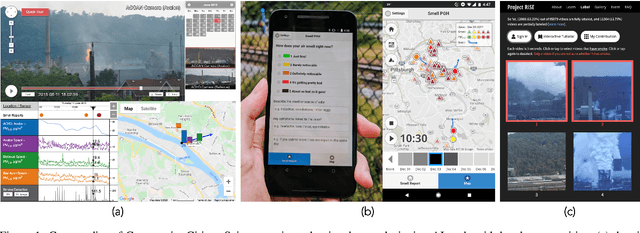Andrea Mauri
Leveraging Reinforcement Learning, Genetic Algorithms and Transformers for background determination in particle physics
Sep 18, 2025



Abstract:Experimental studies of beauty hadron decays face significant challenges due to a wide range of backgrounds arising from the numerous possible decay channels with similar final states. For a particular signal decay, the process for ascertaining the most relevant background processes necessitates a detailed analysis of final state particles, potential misidentifications, and kinematic overlaps, which, due to computational limitations, is restricted to the simulation of only the most relevant backgrounds. Moreover, this process typically relies on the physicist's intuition and expertise, as no systematic method exists. This paper has two primary goals. First, from a particle physics perspective, we present a novel approach that utilises Reinforcement Learning (RL) to overcome the aforementioned challenges by systematically determining the critical backgrounds affecting beauty hadron decay measurements. While beauty hadron physics serves as the case study in this work, the proposed strategy is broadly adaptable to other types of particle physics measurements. Second, from a Machine Learning perspective, we introduce a novel algorithm which exploits the synergy between RL and Genetic Algorithms (GAs) for environments with highly sparse rewards and a large trajectory space. This strategy leverages GAs to efficiently explore the trajectory space and identify successful trajectories, which are used to guide the RL agent's training. Our method also incorporates a transformer architecture for the RL agent to handle token sequences representing decays.
Empowering Local Communities Using Artificial Intelligence
Oct 05, 2021
Abstract:Many powerful Artificial Intelligence (AI) techniques have been engineered with the goals of high performance and accuracy. Recently, AI algorithms have been integrated into diverse and real-world applications. It has become an important topic to explore the impact of AI on society from a people-centered perspective. Previous works in citizen science have identified methods of using AI to engage the public in research, such as sustaining participation, verifying data quality, classifying and labeling objects, predicting user interests, and explaining data patterns. These works investigated the challenges regarding how scientists design AI systems for citizens to participate in research projects at a large geographic scale in a generalizable way, such as building applications for citizens globally to participate in completing tasks. In contrast, we are interested in another area that receives significantly less attention: how scientists co-design AI systems "with" local communities to influence a particular geographical region, such as community-based participatory projects. Specifically, this article discusses the challenges of applying AI in Community Citizen Science, a framework to create social impact through community empowerment at an intensely place-based local scale. We provide insights in this under-explored area of focus to connect scientific research closely to social issues and citizen needs.
 Add to Chrome
Add to Chrome Add to Firefox
Add to Firefox Add to Edge
Add to Edge